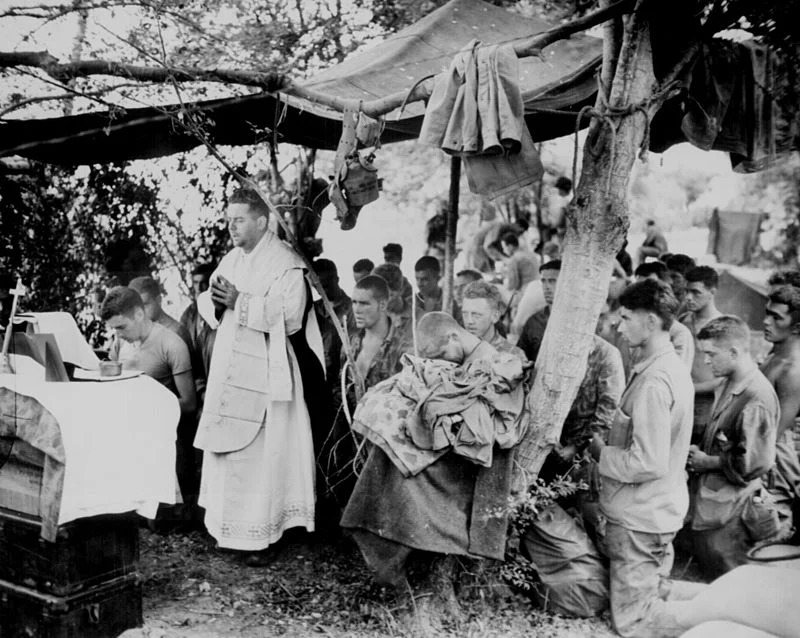Alison McQueen’s Political Realism in Apocalyptic Times offers a refreshing approach to religion in political theory. The book builds on the work of political scientists and political theorists over the past two decades to insert religion into international relations studies. Rather than dismissing apocalyptic language or confining it to political idealism, McQueen finds apocalyptic language in texts of political theory normally associated with political realism, leading her to consider these (purportedly realist) political theorists’ works as responses to apocalypticism.
Relationships with God and Community as Critical Nodes in Center of Gravity Analysis
#Reviewing Enlisting Faith: How the Military Chaplaincy Shaped Religion and State in Modern America
While some might see chaplains as anachronistic, or even as an affront to the principle of separation of church and state, Ronit Stahl, a scholar of modern American social history, argues the military chaplaincy has been and continues to be a driver of change in American religion and society. Given the perennial argument over whether the United States military should or should not be a social laboratory, Stahl’s book invites fresh consideration of the connections between military and society.
Winning the War of Ideology: Leveraging Religious Commonalities
Leveraging common principles found in different religions forms a foundation to undermine those using religious differences as a weapon. Expressing a deeper sense of religious understanding paints the U.S. as a pluralist society in a world where “more than eight-in-ten people identify with a religious group.” Some assert Samuel Huntington prophetically warned about a pending “Clash of Civilizations” citing religiously inspired violence ranging from organized terror groups to “lone wolf” incidents as evidence of a world bound for a cultural collision. Although terrorists represent only a small portion of a religious population, their ability to project global influence indicates the current international framework of nation-states is reaching a tipping point.
#Reviewing God and Sea Power
Few, if any students or practitioners of strategy can argue the importance of Admiral Alfred Thayer Mahan’s influence on sea power theory, as well as his impact on the American military institution as a whole. As with any theorist, however, we tend to examine his body of work, and to look at the factors that shaped who he was as a strategist and a mariner. Most works only give a cursory glance at the things that influenced Mahan’s character across all facets of his life. In God and Sea Power, author Suzanne Geissler goes beyond that, following the closely-interwoven relationship between Mahan’s faith and his work as a sailor, leader, and strategist.






